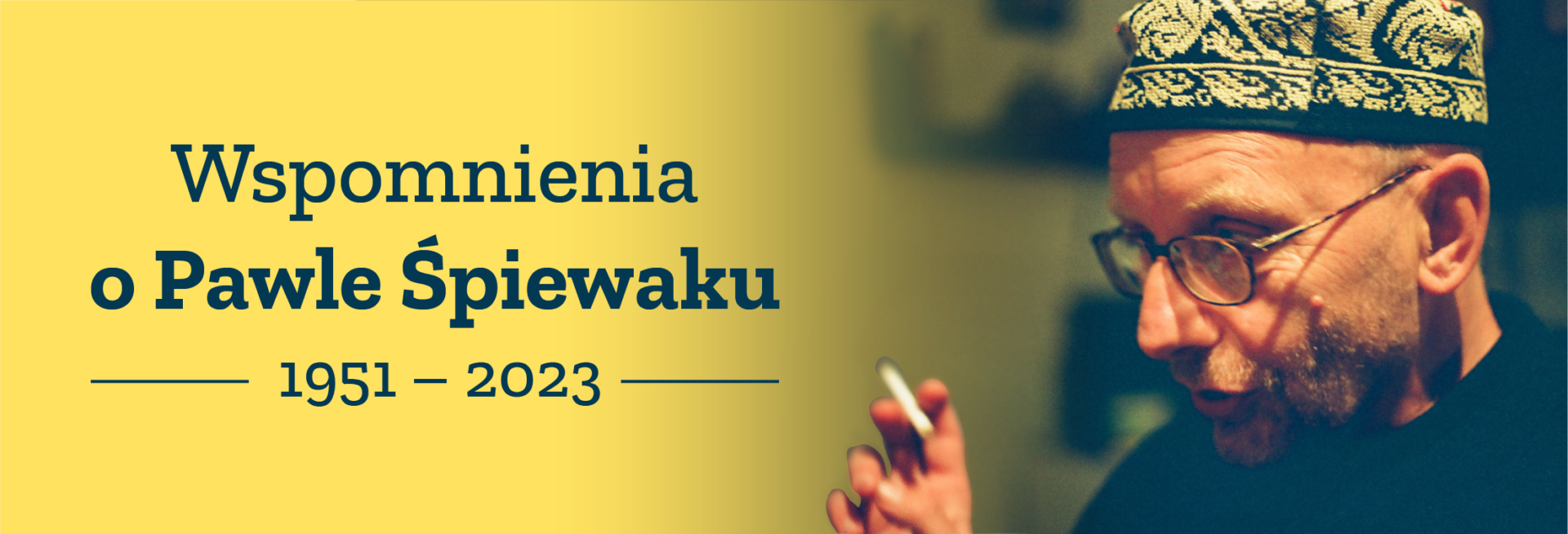KULTURA LIBERALNA > Temat tygodnia > WALZER, SZAWIEL, MEYER:...
WALZER, SZAWIEL, MEYER: What is the political Left afraid of? (I)
Dear Liberal Culture Readers,
The Polish political Left has found itself in an unusually critical situation that is not fully reflected in the polls. The crisis is not about the absence of the Left in both public debate and the public sphere in Poland, but about the manner of its presence. Today, the rhetoric of the Left is predominantly associated with liberal morality (civil partnerships, gender parity etc.). However, the main themes of this rhetoric are more complex. On the one hand they are not left-wing-specific, because other, non-leftist parties, can also involve themselves with them. On the other hand, this rhetoric seems to be used to “cover-up” issues like poverty and social inequality, in other words, the issues that should be at the heart of leftist identity. A lot has already been written about the response of the Left to the 2008 financial crisis, but it seems like none of the crucial questions have been asked in Poland. Is the Left afraid of tackling these typically leftist issues for some reason? Is the thing it is most scared of the lack of its own identity, especially in Poland? What is the leftist politics of history in Poland?
Firstly this week the fears of the modern Left are addressed. Michael Walzer discusses the differences between the American and the European Left, Tadeusz Szawiel takes on the Polish cultural Left and Henning Meyer describes the crisis German and British social democrats find themselves in. More voices in our discussion will follow soon, including obvious questions about the specific fears of the Polish left. Enjoy!
The Editors

1. MICHAEL WALZER: The silence of the masses and borrowed identity
2. TADEUSZ SZAWIEL: The problems behind the politics of cultural difference
3. HENNING MEYER: Tiredness, disappointment and the new beginning
* * *
The silence of the masses and borrowed identity
The United States and Europe reacted differently to the 2008 financial crisis and its long-term consequences and both used completely different means to fight its effects. In the same way, left-wing movements on both sides of the Atlantic have rather different characters.
Let us begin with a few remarks on the terminology. In the United States we do not tend to use the European term “social democracy”. Instead, we normally refer to liberalism (which means neither libertarianism nor laissez-faire economics). It is obvious that America finds itself immersed in the economic crisis in many ways. The national debt is huge, and the government will eventually have to make unpopular decisions regarding public healthcare reform. The environmental situation after the oil spill in the Gulf of Mexico is dramatic. Moreover, any much-needed reform on carbon emissions would have a slowing effect on the economy. Still, the Obama administration, which – from a political point of view – is the embodiment of American liberalism, enjoys wide public support. We can say that this is for two main reasons. First of all, the Democrats still have access to 13 million e-mail addresses collected during the presidential campaign and they put them to good use. Secondly, every crisis offers a significant opportunity. The Americans do realise this, because they have already been through similar tribulations (back in the 1930s).
Yet there is at least one significant difference between the present situation and that of eighty years ago. Despite Obama’s support as reflected in the polls and his modern means of communication with his voters, he does not have the kind of mobilised support Roosevelt had in the 1930s. The kind of social movement which would now spur America to overcome the financial crisis simply isn’t there. If Obama had such a mobilised movement and if he were also able to carry out successful reforms, American liberalism would not only have a chance to survive, but would thrive. If Obama fails, the next presidential election may well be won by the right-wing party backed by neo-liberal market forces. This would present the greatest challenge, but also the greatest fear for social democracy in the USA.
Left-wing parties in Europe, on the other hand, struggle with yet another problem. In the USA it came as a surprise to see the inability of labour, social-democratic and socialist parties in Europe to capitalize on the financial crisis and increase their political appeal. The Labour Party in Britain, the French socialists, and the German Social Democrats were torn by internal factional and personal struggles, which, when they should have been discussing future strategies, in fact prevented them from acting appropriately in the face of the situation they found themselves in. This was then compounded by their focus on issues they wrongly perceived as most important, that is to say issues connected to social tolerance. Ever since the 1960s in the United States the leftism traditionally concerned with these issues has focussed on the respect for what we call personal authenticity. In other words, the focus on tolerance for what used to be called deviant social and sexual behaviour, actions that today are described as “making one’s own choices”. The Americans don’t see this as the politics of a country as a whole. On the contrary, we believe that it has nothing to do with what has to be the social foundation of any kind of leftist politics.
All of this confusion has worked to the detriment of the left-wing parties in Europe and contributed to the rise of the centre-right parties. In France and Germany the movements of Sarkozy and Merkel have acted against their neo-liberal commitments. They have funded all sorts of initiatives, many of which would make any left-wing party proud, and thus gained new supporters. The Left, on the other hand, could not (or did not know how to) use its ideological position, which – unlike Merkel’s or Sarkozy’s political principles – would not have had to have been borrowed from anyone at a time of the financial crisis.
Michael Walzer is a philosopher, political writer and Editor-in-chief of “Dissent Magazine”.
Translated by Natalia Janota and Ben Borek
***
The problems behind the politics of cultural difference
The notion of a cultural Left in Poland has existed for some time and has usually been associated with [the Warsaw left-wing quarterly] “Krytyka Polityczna” and its circles. Here attention and discourse have focused within the field of what is widely regarded as cultural difference. The Cultural Left (and here we could also speak of the politics of cultural difference) stands in opposition to the old, social-democratic Left, which first and foremost emphasizes economic and societal differences. This new Left is not only concerned with affirming difference, but also with an active search and conscious construction of difference itself. The politics of group identities is the logical consequence of the politics of cultural difference. Differences mark the starting point for affirmation as well as the search for, and creation of, an identity, and it follows that affirmed groups demand social recognition. The next logical step is the demand for “equal” or specific rights on the part of various minorities (identity groups). From a notional point of view, this process could be described as follows: the problems associated with political, economic and social emancipation (e.g. equal political rights, a welfare state) have now been replaced with those of cultural emancipation.
The following remarks do not belong to the discourse of cultural criticism. They should rather be taken to suggest certain inner difficulties, which show the politics of cultural difference to be problematic. The cultural Left’s first problem is in justifying why – in the public sphere – some differences are significant, while others are not. The second problem that arises here is to do with justifying why certain groups, for example lesbians and gays, should be granted “equal” or specific rights. It is not enough to simply evoke equality as a universal ideal – this would only be to avoid the real issue. It is obvious that our society refuses equal political rights to its youth. Young people (under 18) are discriminated against – they do not have full civic rights. It is generally agreed that the ideal of equality does not apply here (youths vs. adults). What matters to the cultural Left is whether in theory it is valid to evoke the ideal of equality (and, consequently, all other ideals). This is important, as it rules out referring to an authority or tradition as “justification”.
The third problem is that of justifying the limits of any rights granted. Let me use a simple example. Children are granted the right to sue their parents in a situation of physical abuse. But why should we not go a step further? After all, it would not be absurd to give a child the right to sue his parents and to claim compensation for their mistakes in his upbringing, or for making certain decisions (e.g. moving to a different city with better career prospects but with a worse schooling environment). It would not be absurd, if the child in question were able to provide relevant evidence in court to prove that his parents’ decisions brought losses or setbacks upon him, actions which had an irreversible effect on his life opportunities and identity. And why shouldn’t we go another step further and take more subtle “losses” into account. Why shouldn’t a modern Franz Kafka claim damages from his father? Why shouldn’t there be appropriate legislation in place to make this possible?
Yet another difficulty relates to the question of individual emancipation. Nowadays this problem can be expressed as the ideal of self-realisation or (the increasingly popular) individualisation of an individual (I will pass over the issues connected to the question of the formation of social bonds, social cooperation or indeed the possibilities of social communication in a scenario where self-realisation becomes not only an important but also a superior value. It is worth noting that self-realisation is a reflexive term. I must know that I realise myself, or understand the concept when it is used to describe my position. If self-realisation becomes a certain kind of programme or task, it follows that one employs a more instrumental approach to “oneself”. If self-realisation is also auto-construction, then the more we construct ourselves, the less we know and the less we understand the person constructing – who is the subject here, who is the “I” constructing its self-realisation? As a consequence, the “I” becomes an empty space, laden with a sense of uneasiness and, eventually, a feeling of inauthenticity. Any further construction will deepen these two feelings rather than eradicate them. This constructivism, however, is systematically encouraged, hence the widespread popularity of the following phrases: “interpersonal skills”, “sensitivity training”, “emotional intelligence” and “career planning”. An answer to this permanent lack of authenticity would be to look for relationships supposedly free from construction, for example in intimate relationships – situations which often end in a failure however, due to the all-pervasive obsession with self-construction. Another solution would be a return to ritualised and well-defined relations (religious and quasi-religious, professional, corporate), but this would mean a defeat of the ideals of self-realisation and individualisation.
The varyingly ambitious postulates of cultural change are usually followed by projects involving new modes of lifestyle and new institutions. In a sense, experimenting with new social forms is typical of modernity (the French Revolution could serve as an example here), but they are either short-lived or popular only amongst small, avant-garde circles. In western democracies, this period of intensive experimentation had its heyday in the post-1968 counter-culture. However, many of the participants themselves, who tried new ways of life within communes (which did away with the notion of family) and brought their children up collectively, had – in hindsight – rather negative opinions of these radical projects (as expressed in their memoirs). This leads us to a conclusion that not all modes of life (either proposed or practised) are equally good: some are better than others. This is something most people could agree with. The problem is, though, that this potential superiority (or “worseness”) cannot be revealed by empirical means or be proven though rational discourse. The many failures of various (counter-)cultural projects are largely linked to the fact that they were unable to bear the weight of “that dark, driving, insatiably self-desiring power” . Life itself exceeds the bounds of any objectivity that would allow for a rational recommendation of suitable cultural forms. In social sciences, we can refer here to “side-effects” or “unforeseeable consequences”. It is time that filters “superiority” from “worseness”, and it is also time that is the source of the power of the “traditional” arguments, which are so unacceptable to the cultural Left.
Finally, let us have a quick look at the [statistical] reality. In search of answers to questions about cultural change, we tend to turn to the youth. What are, therefore, the expectations and values of the Polish youth, of 18-19 year-olds who remain within the education system? Young people (88%) expect to start a family (husband/ wife and children). 86% expect to have at least two children and 21% would like to have three. 91% receive religious education at school. 43% agree that these lessons are interesting, while 35% say they are no different to others. 49% go to church at least once a week. In a representative group of 18 to 24 year-olds, the acceptance of unlimited abortion (“abortion on demand”) fell from 34% in 1992 to 14% in 2008 (source: Public Opinion Research Centre CBOS 2008 and Polish General Social Survey PGSS 1992-2008). I have not quoted this data in order to emphasize the difficulties faced by the cultural Left in Poland. After all, obstacles often strengthen motivation and the will to sacrifice. On the other hand, as has been shown by the examples of the Spanish and the Irish, it is difficult to predict what will happen within the next 10 or 20 years. However, these humble indexes of “reality” can also illuminate which modes of lifestyle are trusted by the young to carry them through life.
Tadeusz Szawiel, Doctor of Sociology
Translated by Natalia Janota and Ben Borek
***
Tiredness, disappointment and the new beginning
Fear is not what plagues the British and German Left. After several years of power its main problems are tiredness and disappointment. Yet another visible difficulty is that of redefining the situation it has found itself in. Many left-wing politicians have already managed to forget that government politics and party politics cannot be played by the same rules. This is why leftist parties often focus on criticising others (which is an empty premise in itself), where they should be building up their own strength.
The trials and tribulations of the Left in these two countries belong to a more far-reaching crisis on this side of the political spectrum in Europe. The first symptoms of the crisis can be traced back to the 1990s, a period in which social-democratic parties were going through the process of adapting to the political mainstream. The consequences of this process were both an abandonment of work on the formation of a clearly-defined face of the modern Left, as well as the creation of a left-wing dimension of the political mainstream.
It is in the 1990s that one can find the reasons why the Left did not manage to cope with the 2008 financial crisis. Two years ago many experts hoped that the Left would become a natural beneficiary of the market downturn – as a force that would draw clear limits for neoliberal ideology. There are two main reasons which explain why this did not happen. Firstly, as a consequence of a negligence stretching back several years, the Left did not have a political alternative at hand. Secondly, by the time the crisis arrived, both the British Labour party and the German SPD (as a part of the Great Coalition) were in power and were thus naturally blamed for the crisis.
In Germany this general weakening of the Social Democrats was also contributed to through the formation of a new radical leftist party “Die Linke”. This new party attracted those who were most disappointed, leaving the SPD with relatively few supporters and causing a fragmentation of the leftist electorate. What is more, the internal politics of German left-wing parties has not been carried out democratically for a number of years. Let us use the SPD as an example. Its situation does not look so bad across individual Bundeslands: in each one party members democratically elect their leaders. And because the German states are very varied, the SPD has many different faces, which reflect the views of the inhabitants of particular parts of the country. Unfortunately, mass party meetings have now been practically abandoned and most decisions on the federal level are now made by great personalities (the most obvious example to illustrate this is that of Gerhard Schröder, who would simply bang on the table with his fist and shout out: “You either do this, or I quit”, though this pathology of inner-party egalitarian decision-making has its less dramatic, less obvious sides too). This often understated issue has seriously negative consequences not only for the party itself, but also for democratic culture within a society as a whole.
Luckily, both the German SPD and the British Labour Party are slowly beginning to realise that the time has come to face a whole array of issues. It has become clear that it will be necessary to create a programme that will bring a change of party leaders. It does not yet mean that the Left in Germany and England have completely scrapped the strategy of fitting-in to the political mainstream. However, the formation of a new identity along with the will for further development are already visible. And this does not necessarily mean leaving behind everything that the social democrats achieved in the 1990s.
The most serious social problems of today will help shape this identity. Let us define them. Germany of the 1990s was mostly concerned with unemployment and the question of forming a state-run job market. Today, unemployment still remains the most serious issue across the Federal Republic, but it has now been associated with the problems faced by the economic system, especially questions of social inequality. This inequality has been created through the differences in the tax levels paid by citizens (in Germany as well as in Britain the focal point of the tax debate is the income tax level for the richest – left-wing parties propose its increase to a 50% threshold). The main problem here, of course, is how the fight against inequality is supposed to become the very heart of the new leftist identity, and how to dress these demands up as a policy product.
If everything is to be taken back to a more democratic set-up of party bodies, the Social Democrats will yet again have a chance to return to where they came from: to having their finger on the pulse of a society they closely relate to. In order to make this possible, it is necessary to create relevant mechanisms that would allow left-wing parties to listen to the needs of their electorate and – consequently – to take up some kind of action. Comfortingly enough, the Secretary General of the SPD is currently attempting to create this kind of system on the local level, which will hopefully result in the rebuilding of a political culture within the party itself, and the current behaviour of the British Labour Party is very similar.
Henning Meyer is a political scientist, senior visiting fellow at the LSE and editor-in-chief of “Social Europe Journal”.
Translated by Natalia Janota and Ben Borek
Cooperation: Tomasz Jarzabek
Illustrations: Rafal Kucharczuk
„Kultura Liberalna” nr 83 (33/2010), 10 August 2010.
Skoro tu jesteś...
... mamy do Ciebie małą prośbę. Żyjemy w dobie poważnych zagrożeń dla pluralizmu polskich mediów. W Kulturze Liberalnej jesteśmy przekonani, że każdy zasługuje na bezpłatny dostęp do najwyższej jakości dziennikarstwa.
Każda i każdy z nas ma prawo do dobrych mediów. Warto na nie wydać nawet drobną kwotę. Nawet jeśli przeznaczysz na naszą działalność 20 zł miesięcznie, to jeśli podobnie zrobią inni, wspólnie zapewnimy działanie portalowi, który broni wolności, praworządności i różnorodności.
Prosimy Cię, abyś tworzył lub tworzyła Kulturę Liberalną z nami. Dołącz do grona naszych Darczyńców i Patronów!
PRZECZYTAJ INNE Z TEGO NUMERU
KOMENTARZE




















